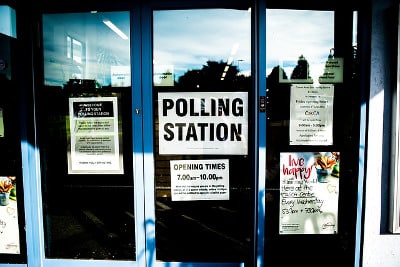The AE policy was introduced under the Pensions Act 2008 as a way of preventing workers from missing opportunities to save up money for later life (either because their employer failed to enrol them in the company’s pension scheme or because they themselves didn’t apply to join). Auto-enrolment means that employers must enrol all eligible employees (those aged over 22 and who earn over £10,000 a year) into a pension scheme. The system has helped get millions more onto workplace pensions, particularly younger workers.
But what seems like a good idea across the board has caused issues for some employers. And these employers have now lobbied for the government to conduct a review of the system.
One such group wanting to see change is the National Farmers’ Union (NFU), which thinks that AE puts an “unnecessary burden” (as said by Lee Osborne, the NFU’s skills and employment adviser) on farmers and other businesses who rely heavily on seasonal workers. Osborne mentioned how employers in the agricultural industry have to spend extra time and money just so that they can enrol workers who will only be employed for a short period of time ie, workers who are “unlikely to ever draw on the resulting very small pension pot”. The NFU wants to see the AE requirement for such workers removed.
Osbourne’s views were backed by the Confederation of British Industry, which wants to see employers have the power to delay a worker’s enrolment for longer than the current three-month waiting period.
The review has led to discussions over whether AE should be made more flexible in terms of which businesses are able to opt out. It has also raised concerns over the self-employed, who account for 4.77 million of UK workers, and part-time workers whose pensions may also be low on contributions.
Labour MP Frank Field has recently called for Theresa May to improve rights for ‘gig-economy workers’, such as those on short term contracts and freelancers, who often face financial insecurity with annual earnings that can fall under the £10,000 AE threshold.
If put into effect, the proposed reforms would exclude tens of thousands of workers from pensions. Former pensions minister Steve Webb said that he thought the decision to limit those eligible for AE, which already excludes millions of people based on their low income and age, was a “backward step”.
According to the Financial Times, The Department for Work and Pensions has detailed how the review will try to cater to both sides of the argument, with Richard Harrington, Parliamentary Under-Secretary of State for Pensions, saying that they need to “find a balance between wanting as many people as possible to have pensions, and economic sense when there is an impact on employers”.
At Blacktower, we hope that if any changes do go ahead, they don’t leave hard-working people in difficult financial situation without a sufficient pension fund.
The financial advisers at Blacktower stay abreast of all current reforms and legislation changes in the world of finance, which allows us to inform you of the best way to protect your pension. For instance, we offer advice for moving money into a Qualifying Recognised Overseas Pension Scheme (QROPS) based in France, Germany, and many other jurisdictions that will provide you with benefits you don’t experience in the UK.
For helping finding the best retirement solution that’s been tailored to you, contact Blacktower today.
This communication is for informational purposes only and is not intended to constitute, and should not be construed as, investment advice, investment recommendations or investment research. You should seek advice from a professional adviser before embarking on any financial planning activity. Whilst every effort has been made to ensure the information contained in this communication is correct, we are not responsible for any errors or omissions.

 Following Theresa May’s shock announcement that there will be a general election on June 8, many long-term expats were left wondering if they would get the chance to vote.
Following Theresa May’s shock announcement that there will be a general election on June 8, many long-term expats were left wondering if they would get the chance to vote.